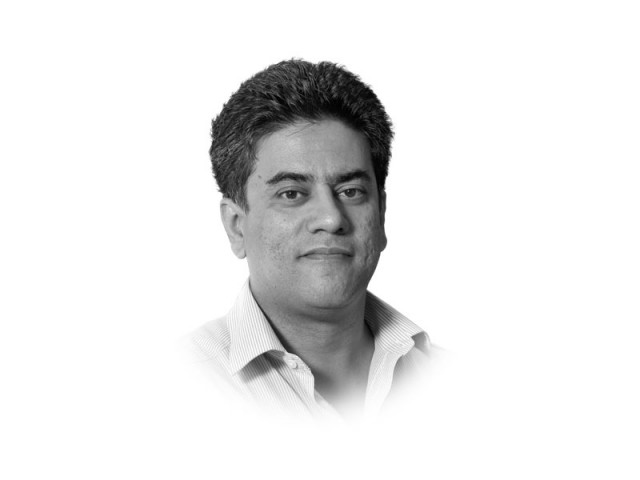The Rule of Law
South Korea, with almost no natural resources, has become an economic Asian Tiger in 30 years because of rule of law

The writer is Editor of The Express Tribune
Heather Cho, who was seated in first class, became angry when served assorted nuts in a packet instead of in a bowl, and ordered the pilot to return back for offloading the flight purser. The purser was following an SOP that dictates that once the aircraft is getting ready for flight, items can only be served in this manner.
Under Aviation Law, after an aircraft is pushed back after permission from Ground Control, it can only return to the gate for technical reasons or in case of an emergency. As a consequence Korean Air 86 was delayed by 20 minutes and arrived late at Seoul by 11 minutes.
Deterrence is the only way to enforce laws. After the incident, the Korean Ministry of Transportation launched an investigation on breach of privilege and violation of aviation law. Heather Cho was subsequently forced to resign from the Hanjin Group and is in prison facing charges of forcing a flight to change its normal route, use of violence against the flight crew, hindering a government probe and forcing a flight purser off the plane. If guilty of all charges, she faces 15 years in prison.
South Korea, a country with almost no natural resources, has become an economic Asian Tiger in just 30 years because of rule of law, independent regulatory controls, fiscal discipline, investment in education and a strong independent judiciary with a proper system of law enforcement.
It has a democratic system of governance with strong institutions, which through development of human resources and acquisition of technological knowledge in just about three decades is home to some of the world’s leading multinationals like Samsung, LG, LOTTE, Hyundai, Hanjin, Daewoo, Doosan and the Hana Financial Group. South Korea’s market economy ranks 15 in the world by GDP and 12 by Purchasing Power.
Through rigorous good governance and education, it has transformed its large population liability into an asset by building a large motivated internal consumer economy. Its GDP per capita in 2010 was $30,000 as compared to $2,300 in 1980. By 2013, it had a record surplus of $70.7 billion over its current account, up 47% from 2012.
There is another country in our region that is following South Korea’s path by adherence to the rule of law. Earlier this year, President Barack Obama’s decision to cancel his visit to Agra and instead fly off to Saudi Arabia came after the Uttar Pradesh government insisted that he would not be allowed to use his armour-plated car to drive through the Taj Mahal’s eastern gate.
The Secret Service, which protects President Obama, said having him travel into the complex in a battery-powered golf-cart posed an unacceptable security risk. The Indian Supreme Court had earlier directed all visitors to disembark at the Shilpgram complex, 500 metres away, and board an electric vehicle to the entry gate owing to pollution concerns.
The UP government refused to grant special access permission for President Obama’s bomb-proof personal vehicle, as well as almost 50 other vehicles carrying close-protection personnel and electronic security equipment. It told the federal government to get an order from the Supreme Court.
There was also a fight over allowing US snipers inside the Taj, which the Archaeological Survey of India (ASI) refused outright. ASI officials said they rejected the demand of the US secret service on this and told them the US president will have to do with unarmed bodyguards inside the mausoleum, if at all. They added that Indian commandos were more than equipped to handle the situation. US secret service officials were told only Indian soldiers (CISF) would be deployed inside the Taj complex while unarmed US security men would guard the US president. Indian security agencies added that their US counterparts also failed to get permission to place drone cameras inside the Taj Mahal. Since the monument is a no-flying zone, no drone camera can be placed there.
Let’s learn from both examples. No other comment needed.
Published in The Express Tribune, February 16th, 2015.
Like Opinion & Editorial on Facebook, follow @ETOpEd on Twitter to receive all updates on all our daily pieces.














COMMENTS
Comments are moderated and generally will be posted if they are on-topic and not abusive.
For more information, please see our Comments FAQ